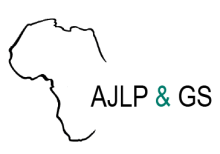Land Library
Welcome to the Land Portal Library. Explore our vast collection of open-access resources (over 74,000) including reports, journal articles, research papers, peer-reviewed publications, legal documents, videos and much more.
/ library resources
Showing items 1 through 9 of 117.We assessed how people adapt to climate change in the context of forests through a systematic review of the international empirical research literature.
This article provides a description of baseline survey data that was collected in Senegal in the regions of Sedhiou and Tambacounda in 2020, respectively, and as part of an agricultural development project aimed at improving the well-being and resilience of farming households.
Across sub-Saharan Africa, countries with a greater percentage of overlapping days in their school and farming calendars also have lower primary school survival rates.
The new Women’s Empowerment Metric for National Statistical Systems (WEMNS) is a streamlined tool for measuring women’s empowerment, intended for use in large-scale, multitopic surveys conducted by national statistical systems.
This video is about the everyday struggles of Munda people of Datinakhali Mundapara in Shyamnagar upazila (subdistrict) of Satkhira district in Bangladesh. Munda is one of the indigenous communities in the country.
Context and background Residing in areas of flood risk informal settlements is more or less normal among low-income households in most cities of the developing countries.
African cities are characterized by urbanization, social and economic problems that very often favor crises in the development of their spaces. The city of Bouake, in the center of Côte d'Ivoire, has been experiencing urban sprawl since 1980.
Background and Context :Land is a key element for the practice of economic activities such as agriculture. In rural areas, its equitable access is an essential condition for sustainable development and the improvement of the living conditions of populations.
The 2019 Malawi Social Accounting Matrix (SAM) follows IFPRI's Standard Nexus SAM approach, by focusing on consistency, comparability, and transparency of data. The Nexus SAMs available on IFPRI's website separates domestic production into 42 activities.



